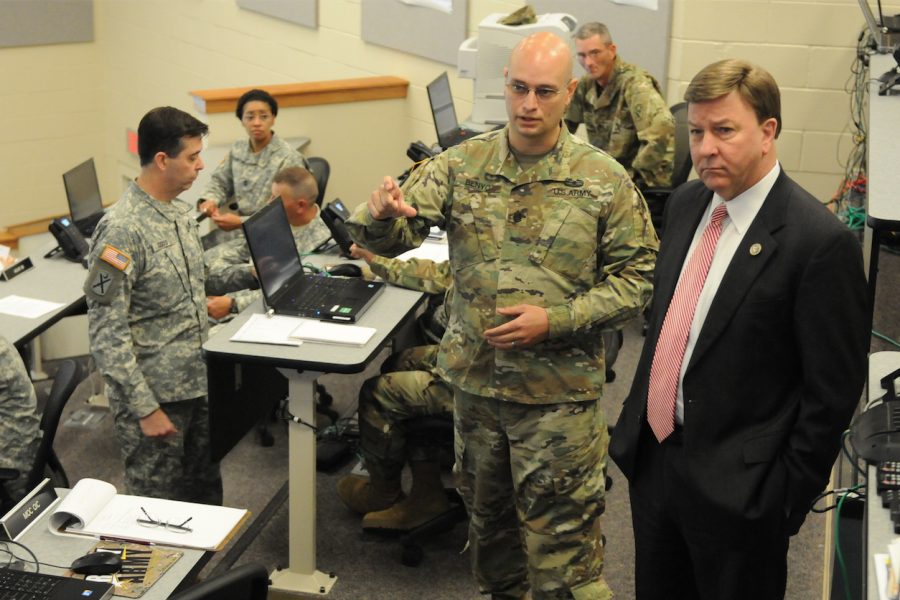Alabama Rep. Mike Rogers, a leading Space Force proponent, will become the top Republican member of the House Armed Services Committee, his office said Dec. 3.
“It’s an honor to be selected by my colleagues to lead the Republicans as Ranking Member of the House Armed Services Committee for the 117th Congress,” he said in a release. “The nature of warfare is changing, and we must adapt accordingly. … I will work to modernize our military, combat our rising adversaries, and dominate the battlefields of this century.”
He beat out Reps. Rob Wittman (R-Va.), ranking member of the seapower and projection forces subcommittee, and Mike Turner (R-Ohio), ranking member of the strategic forces subcommittee, for the new position, according to Politico.
Rogers led the strategic forces subcommittee, a panel that manages policy for issues including space and nuclear weapons, for four years. He has served on HASC for 18 years, and is also the sitting ranking member on the House Homeland Security Committee. At home in East Alabama, Rogers represents Anniston Army Depot, Fort Benning, and Maxwell Air Force Base—a key installation for Air Education and Training Command that also hosts airlift planes.
He’ll take over for Rep. Mac Thornberry (R-Texas), who is retiring when his term ends Jan. 3, 2021. Thornberry has spent five years as the top-ranking Republican on HASC, serving as both chairman and ranking member.
Rogers first proposed the creation of a Space Corps in 2017 with fellow HASC member Rep. Jim Cooper (D-Tenn.), now head of the strategic forces panel. That legislation laid the groundwork for launching a Space Force as part of the Fiscal 2020 National Defense Authorization Act last year.
Past statements indicate Rogers will scrutinize the relationships between the budding Space Force and the rest of the armed forces. In December 2019, he criticized the Department of the Air Force for slow-walking the creation of a new space branch.
“The biggest problem came from the Air Force. It’s fighter pilot-dominated,” he said. “[Space] has been their cookie jar, their money pot for years, that they’ve always gone to take money out of when we didn’t give them what they wanted for air programs. … They did not want to see that money pot taken away.”
Territorial concerns will remain as the Space Force begins to bring in new members and programs from the Army and Navy departments, impacting budgets and planning across the Pentagon.
Rogers has cast doubt on the need for a full-fledged Department of the Space Force on par with the Air Force, Army, and Navy. Just as the Marine Corps has remained under the Navy, the Space Force may not become burdensome enough to require a larger organization, he said.
When the Space Force was created last year, Rogers also seemed skeptical of the Senate’s requirement to create an assistant secretary of the Air Force for space acquisition and integration as a counterpart to the Air Force’s procurement boss. Will Roper, who oversees both air and space acquisition as USAF acquisition chief, has questioned the need for that new position as well.
The Pentagon will need to earn Rogers’s support as he tries to build consensus on defense issues within his own party as well as with Chairman Rep. Adam Smith (D-Wash.).
Smith said Dec. 3 Rogers will carry on the committee’s bipartisan tradition of “sound, level-headed leadership,” while others praised him for carrying the conservative torch.
“He is a patriot who has proven to be one of the most effective voices in our conference for a strong national defense,” House Republican Leader Rep. Kevin McCarthy (R-Calif.) said in a release. “I am confident Mike will lead Republicans on the Armed Services Committee well over the next two years.”
